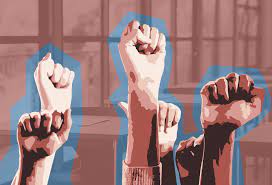Bias against African Americans during investigations
Apr 07, 2023
This paper discusses the effects of bias against African Americans during criminal investigations, and how this bias can lead to wrongful convictions.
Historically, African Americans have been subject to higher levels of scrutiny than white suspects by law enforcement when it comes to criminal investigations. This phenomenon is known as 'racial profiling'. In addition to increased scrutiny, there is evidence that racial bias also affects the way in which police interrogations are conducted.
Studies have shown that police officers are more likely to ignore mitigating evidence or confessions from African American suspects than white suspects. There is also evidence that prosecutors and judges may be influenced by racial prejudice, leading to harsher sentences for African American defendants. The combination of these factors has a detrimental effect on the criminal justice system, especially on those who are wrongfully convicted due to bias.

Furthermore, there is research that suggests biases against African Americans during the investigation process can have a lasting impact on their lives. This includes employment opportunities, housing, and access to other resources. In addition, studies indicate that individuals who are wrongfully convicted because of racial bias in the criminal justice system suffer from increased levels of depression and anxiety, as well as decreased life satisfaction and self-efficacy.
The implications of bias against African Americans during criminal investigations are clear: it undermines the integrity of our criminal justice system and has far-reaching effects for those wrongfully convicted due to prejudice. It is essential that we address this issue head-on by recognizing its existence, educating law enforcement officials about implicit bias, and reforming our criminal justice system to ensure that everyone receives a fair trial. Only through these steps can we be sure that innocent individuals will not suffer due to racial prejudice.
To sum up, the effects of bias against African Americans during criminal investigations are significant and far-reaching. It is essential that law enforcement officials, prosecutors, and judges alike understand the implications of this bias and take steps to address it in order to promote fairness within the criminal justice system. By doing so, we can help ensure that no one is wrongfully convicted due to racial prejudice or any other form of discrimination.
